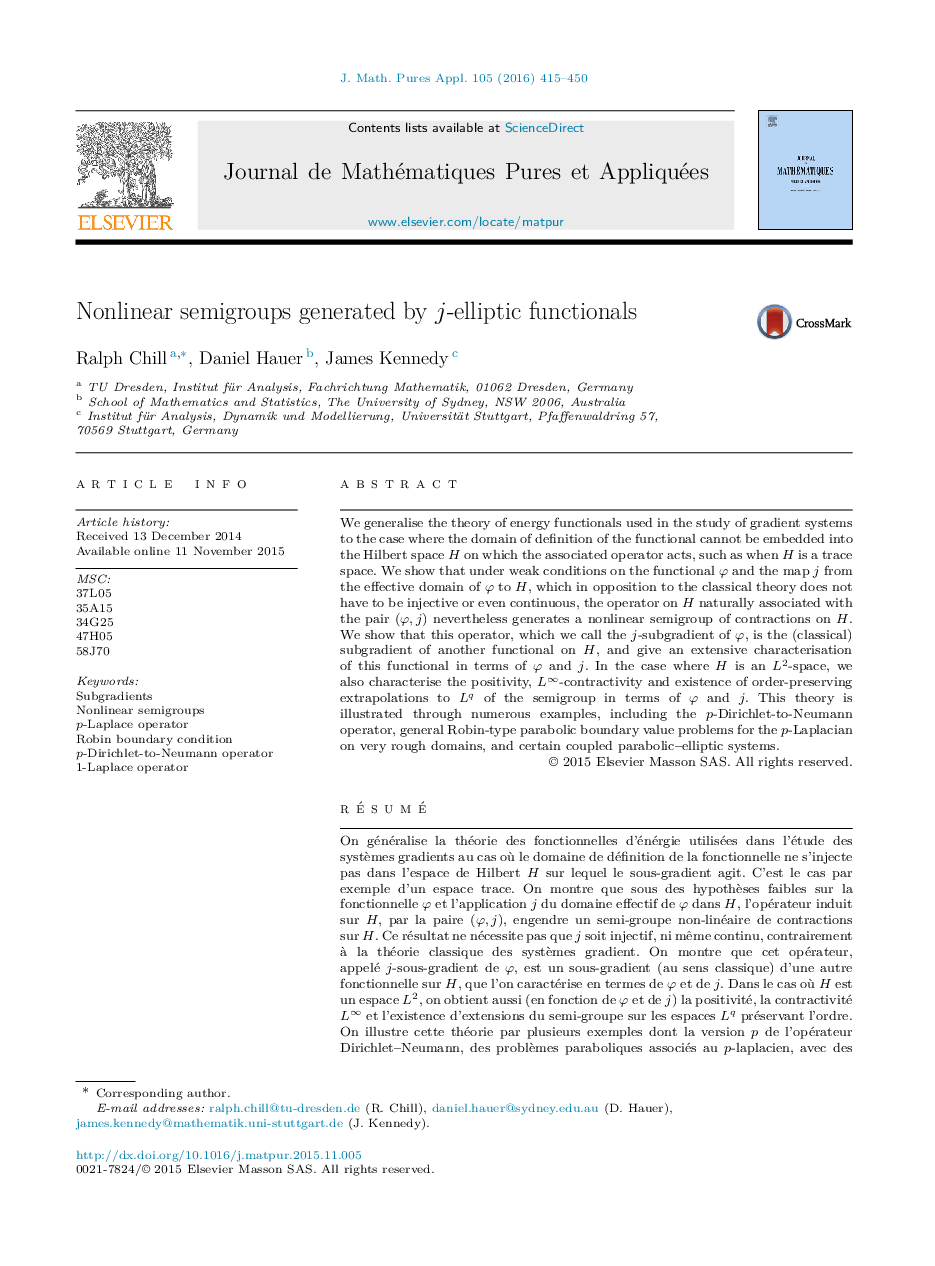| Article ID | Journal | Published Year | Pages | File Type |
|---|---|---|---|---|
| 4643870 | Journal de Mathématiques Pures et Appliquées | 2016 | 36 Pages |
We generalise the theory of energy functionals used in the study of gradient systems to the case where the domain of definition of the functional cannot be embedded into the Hilbert space H on which the associated operator acts, such as when H is a trace space. We show that under weak conditions on the functional φ and the map j from the effective domain of φ to H, which in opposition to the classical theory does not have to be injective or even continuous, the operator on H naturally associated with the pair (φ,j)(φ,j) nevertheless generates a nonlinear semigroup of contractions on H. We show that this operator, which we call the j-subgradient of φ, is the (classical) subgradient of another functional on H, and give an extensive characterisation of this functional in terms of φ and j. In the case where H is an L2L2-space, we also characterise the positivity, L∞L∞-contractivity and existence of order-preserving extrapolations to LqLq of the semigroup in terms of φ and j. This theory is illustrated through numerous examples, including the p-Dirichlet-to-Neumann operator, general Robin-type parabolic boundary value problems for the p-Laplacian on very rough domains, and certain coupled parabolic–elliptic systems.
RésuméOn généralise la théorie des fonctionnelles d'énérgie utilisées dans l'étude des systèmes gradients au cas où le domaine de définition de la fonctionnelle ne s'injecte pas dans l'espace de Hilbert H sur lequel le sous-gradient agit. C'est le cas par exemple d'un espace trace. On montre que sous des hypothèses faibles sur la fonctionnelle φ et l'application j du domaine effectif de φ dans H, l'opérateur induit sur H , par la paire (φ,j)(φ,j), engendre un semi-groupe non-linéaire de contractions sur H. Ce résultat ne nécessite pas que j soit injectif, ni même continu, contrairement à la théorie classique des systèmes gradient. On montre que cet opérateur, appelé j-sous-gradient de φ, est un sous-gradient (au sens classique) d'une autre fonctionnelle sur H, que l'on caractérise en termes de φ et de j. Dans le cas où H est un espace L2L2, on obtient aussi (en fonction de φ et de j ) la positivité, la contractivité L∞L∞ et l'existence d'extensions du semi-groupe sur les espaces LqLq préservant l'ordre. On illustre cette théorie par plusieurs exemples dont la version p de l'opérateur Dirichlet–Neumann, des problèmes paraboliques associés au p-laplacien, avec des conditions aux limites générales du type Robin sur des domaines non-réguliers, et enfin des systèmes couplés d'équations paraboliques–elliptiques.
